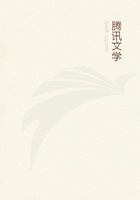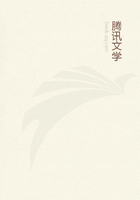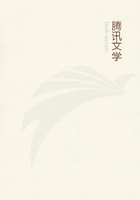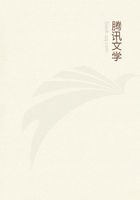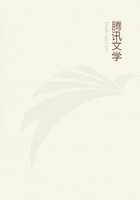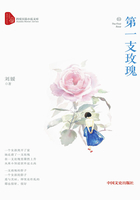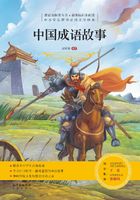While Addison was at Paris, an event took place which made that capital a disagreeable residence for an Englishman and a Whig.
Charles, second of the name, King of Spain, died; and bequeathed his dominions to Philip, Duke of Anjou, a younger son of the Dauphin. The King of France, in direct violation of his engagements both with Great Britain and with the States-General, accepted the bequest on behalf of his grandson. The House of Bourbon was at the summit of human grandeur. England had been outwitted, and found herself in a situation at once degrading and perilous. The people of France, not presaging the calamities by which they were destined to expiate the perfidy of their sovereign, went mad with pride and delight. Every man looked as if a great estate had just been left him. "The French conversation," said Addison, "begins to grow insupportable; that which was before the vainest nation in the world is now worse than ever." Sick of the arrogant exultation of the Parisians, and probably foreseeing that the peace between France and England could not be of long duration, he set off for Italy.
In December 1701 [It is strange that Addison should, in the first line of his travels, have misdated his departure from Marseilles by a whole year, and still more strange that this slip of the pen, which throws the whole narrative into inextricable confusion, should have been repeated in a succession of editions, and never detected by Tickell or by Hurd.] he embarked at Marseilles. As he glided along the Ligurian coast, he was delighted by the sight of myrtles and olive trees, which retained their verdure under the winter solstice. Soon, however, he encountered one of the black storms of the Mediterranean. The captain of the ship gave up all for lost, and confessed himself to a capuchin who happened to be on board. The English heretic, in the meantime, fortified himself against the terrors of death with devotions of a very different kind. How strong an impression this perilous voyage made on him, appears from the ode, "How are thy servants blest, 0 Lord!" which was long after published in the Spectator. After some days of discomfort and danger, Addison was glad to land at Savona, and to make his way, over mountains where no road had yet been hewn out by art, to the city of Genoa.
At Genoa, still ruled by her own Doge, and by the nobles whose names were inscribed on her Book of Gold, Addison made a short stay. He admired the narrow streets overhung by long lines of towering palaces, the walls rich with frescoes, the gorgeous temple of the Annunciation, and the tapestries whereon were recorded the long glories of the House of Doria. Thence he hastened to Milan, where he contemplated the Gothic magnificence of the cathedral with more wonder than pleasure. He passed Lake Benacus while a gale was blowing, and saw the waves raging as they raged when Virgil looked upon them. At Venice, then the gayest spot in Europe, the traveller spent the Carnival, the gayest season of the year, in the midst of masques, dances, and serenades. Here he was at once diverted and provoked, by the absurd dramatic pieces which then disgraced the Italian stage. To one of those pieces, however, he was indebted for a valuable hint. He was present when a ridiculous play on the death of Cato was performed. Cato, it seems, was in love with a daughter of Scipio. The lady had given her heart to Caesar. The rejected lover determined to destroy himself. He appeared seated in his library, a dagger in his hand, a Plutarch and a Tasso before him; and, in this position, he pronounced a soliloquy before he struck the blow. We are surprised that so remarkable a circumstance as this should have escaped the notice of all Addison's biographers.
There cannot, we conceive, be the smallest doubt that this scene, in spite of its absurdities and anachronisms, struck the traveller's imagination, and suggested to him the thought of bringing Cato on the English stage. It is well known that about this time he began his tragedy, and that he finished the first four acts before he returned to England, On his way from Venice to Rome, he was drawn some miles out of the beaten road, by a wish to see the smallest independent state in Europe. On a rock where the snow still lay, though the Italian spring was now far advanced, was perched the little fortress of San Marino. The roads which led to the secluded town were so bad that few travellers had ever visited it, and none had ever published an account of it. Addison could not suppress a good-natured smile at the simple manners and institutions of this singular community. But he observed, with the exultation of a Whig, that the rude mountain tract which formed the territory of the republic swarmed with an honest, healthy, and contented peasantry, while the rich plain which surrounded the metropolis of civil and spiritual tyranny was scarcely less desolate than the uncleared wilds of America.
At Rome Addison remained on his first visit only long enough to catch a glimpse of St. Peter's and of the Pantheon. His haste is the more extraordinary because the Holy Week was close at hand.
He has given no hint which can enable us to pronounce why he chose to fly from a spectacle which every year allures from distant regions persons of far less taste and sensibility than his. Possibly, travelling, as he did, at the charge of a government distinguished by its enmity to the Church of Rome, he may have thought that it would be imprudent in him to assist at the most magnificent rite of that Church. Many eyes would be upon him; and he might find it difficult to behave in such a manner as to give offence neither to his patrons in England, nor to those among whom he resided. Whatever his motives may have been, he turned his back on the most august and affecting ceremony which is known among men, and posted along the Appian Way to Naples.

